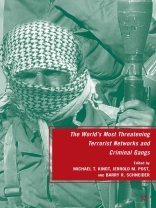Terrorist organizations and international criminal networks pose an increasing danger to the world. This book looks at diverse groups from Al Qaeda to Mexican drug cartels and includes a chapter on terrorist WMD threats. This look at sub-state rivals is recommended to all serious students of international security.
Tabla de materias
PART I: BROADER NON-STATE ACTOR ISSUES Suicide Terrorism: Are There Important Counterterrorist Lessons to be Learned?; J.E.Winkates Al Qaeda’s Modus Operandi: Anticipating Their Target Selection; B.R.Schneider Political Islam and Radical Islam: The Cases of Pakistan and Bangladesh; S.F.Burgess ‘Like Glitter of the Sun’: Iran and Terrorism; G.F.Giles Terrorist use of WMD; J.J.F.Forest PART II: SPECIFIC NON-STATE ACTOR GROUPS Hezbollah: A State Within a State; M.T.Kindt Hamas: The Islamic Resistance Movement; J.M.Post Al Qaeda 2.0 and the Global Salafi Jihad; J.M.Post Jemaah Islamiyah Remains Active and Deadly; J.C.Whitmire The Mexican Drug Cartels: At War for Control of the U.S.–Mexico Border; D.E.Teicher Revolutionary Armed Forces of Colombia (FARC); J.M.Post Mara Salvatrucha: A Threat to U.S. and Central American Security; T.S.Strickland
Sobre el autor
BARRY R. SCHNEIDER is the Director of the USAF Counterproliferation Centre (CPC) at Maxwell AFB, and is also a Professor of International Relations at the Air War College, USA.
JERROLD M. POST is Professor of Psychiatry, Political Psychology and International Affairs and Director of the Political Psychology Program at The George Washington University, USA.
LIEUTENANT COLONEL DR. MICHAEL T. KINDT is the Director of Counterterrorism Studies at the USAF CPC, USA.












